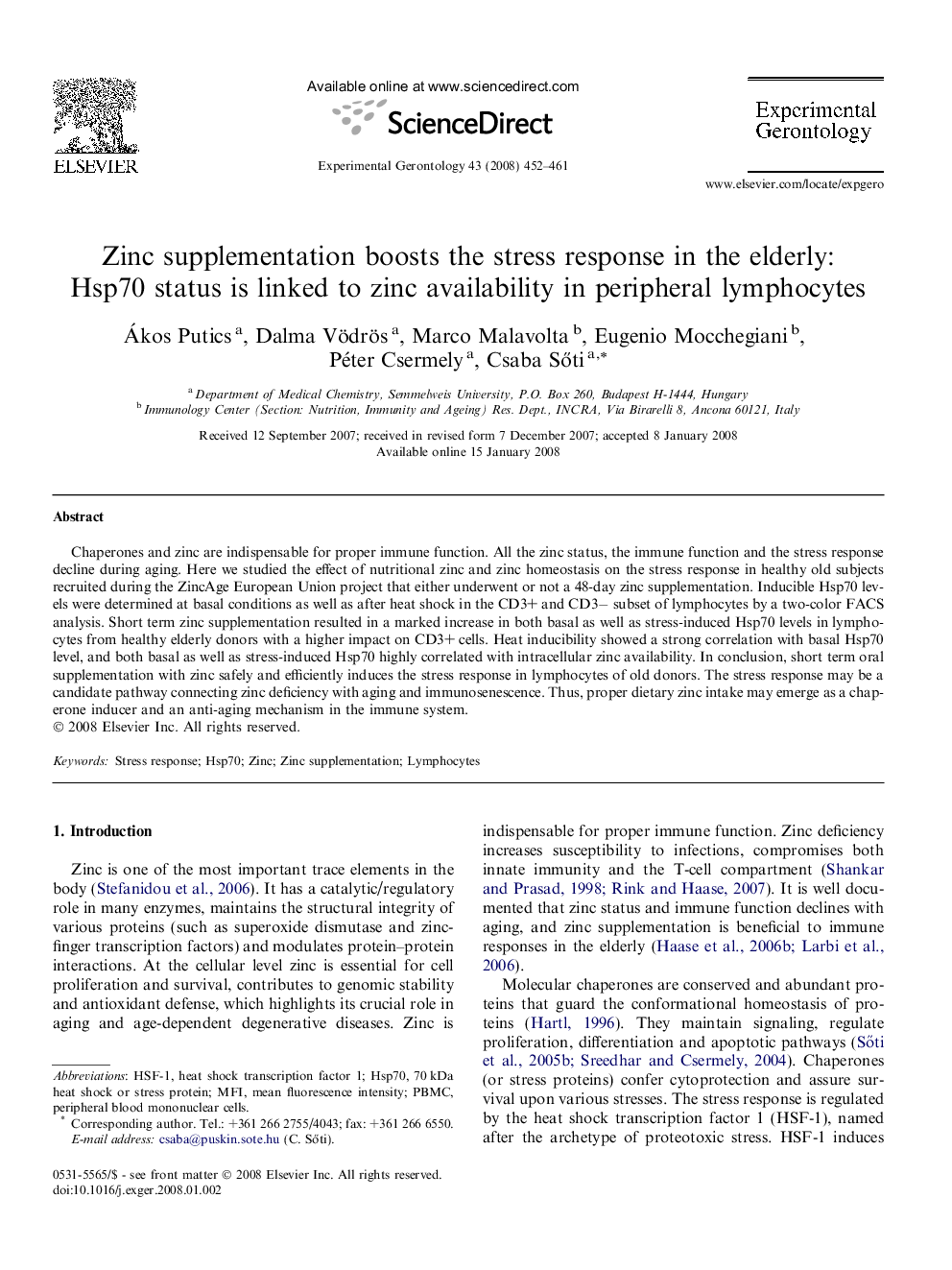| Article ID | Journal | Published Year | Pages | File Type |
|---|---|---|---|---|
| 1906804 | Experimental Gerontology | 2008 | 10 Pages |
Chaperones and zinc are indispensable for proper immune function. All the zinc status, the immune function and the stress response decline during aging. Here we studied the effect of nutritional zinc and zinc homeostasis on the stress response in healthy old subjects recruited during the ZincAge European Union project that either underwent or not a 48-day zinc supplementation. Inducible Hsp70 levels were determined at basal conditions as well as after heat shock in the CD3+ and CD3− subset of lymphocytes by a two-color FACS analysis. Short term zinc supplementation resulted in a marked increase in both basal as well as stress-induced Hsp70 levels in lymphocytes from healthy elderly donors with a higher impact on CD3+ cells. Heat inducibility showed a strong correlation with basal Hsp70 level, and both basal as well as stress-induced Hsp70 highly correlated with intracellular zinc availability. In conclusion, short term oral supplementation with zinc safely and efficiently induces the stress response in lymphocytes of old donors. The stress response may be a candidate pathway connecting zinc deficiency with aging and immunosenescence. Thus, proper dietary zinc intake may emerge as a chaperone inducer and an anti-aging mechanism in the immune system.
